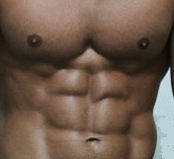Many essays, articles, and other pieces on the use of steroids in sports take it for granted that using steroids is wrong and athletes caught doing so must be somehow punished by sporting authorities and/or state law. This piece aims to examine this common assumption about steroids. The points may also be valid for discussions about other substances prohibited in sports, such as human growth hormone or HGH.
One of the main reasons that steroids are so frowned upon is because of their side effects on athletes’ bodies. Then again, it can also be argued that other substances or practices that are not illegal can also have a huge effect on athletes and their health. For example, the training process for young gymnasts can lead to girls becoming underweight or having delayed puberty, especially if they are put on very strict or even downright unhealthy diets to keep them thin and flexible. Other sports, such as boxing, necessitate athletes exposing themselves to the risk of serious injury, such as Muhammad Ali, whose Parkinson’s Disease is linked to the blows to the head he sustained in his years as a fighter. If violence and warped bodily development are, in a manner of speaking, normal in some Olympic sports, why not steroid use, despite its potential side effects?
Another reason is that steroids and other performance-enhancing drugs give athletes an unfair advantage over people who do not use such substances. Then again, what advantages are fair, and which are unfair? What about sportsmen and sportswomen who come from the most affluent countries and have access to the best training and equipment, as opposed to players who have less support? In short, how do we draw the line between advantages that are legitimate or fair, versus those that aren’t?
In the Olympics, athletes can face enormous pressure to be victorious, or at least to perform well. After all, they are representing their countries at what is probably the biggest sports event in the world. They may even–directly or indirectly–become swept up in one or more political agendas. As such, the decision of an athlete to use steroids at an event like the Olympics often cannot be reduced to the free choice of an autonomous individual. How, then, should authorities punish athletes (and others involved in the use of steroids in the competition) fairly? To what extent can they take into account the testimony of athletes accused of cheating with steroids, and to what extent can an athlete come forward with the statement that he or she was pressured or even forced to take steroids by more powerful parties? These and other questions factor into policies concerning steroids, but of course, the issue is often too complex for policies to fully encapsulate.
There is also the matter of who should be held responsible. Athletes might be pressured into steroid use, as is reported by at least one athlete from the former East Germany. In some cases, athletes claim that they were given steroids without their knowledge. Olympic runner Marion Jones, who won glory for the American team at the 2000 Summer Olympics, is one of the highest-profile athletes to admit to recently admit to having used steroids. Jones used tetrahydrogestrinone leading up to her running events in 2000. However, she states that she was actually given the drug by her coach, who told her that it was a nutritional supplement. Jones stated she did not fully realize she had taken an illegal substance until 2001, after she had won at the games. Both Jones and her coach ended up facing charges–not necessarily at the hands of Olympic authorities, but for having lied to American federal agents years later.
Steroids are already a complicated issue, but become even more ambiguous once we start examining our core assumptions.
Legal Anti Aging HGH Supplements












this always come up. i wonder who among the world famous athletes use steroids and who among them actually possess the beautiful bod as a result of the pains of working out. it’s just so unfair to get buffed ‘illegally’. you know!
there were news before linking champion boxer manny pacquiao to steroids. i dnt think there’s truth to that!
PACQUIAO IS A GREAT SPORTSMAN. HE MADE THAT CLEAR WHEN HE ACCEPTED THE DOUBTFUL DECISIONS OF THE JUDGES DURING HIS LAST FIGHT WITH BRADLEY.HE CERTAINLY WOULD NOT DO SOMETHING ILLEGAL IN SPORTS!
HGH and sports have a very intriguing relationship. But given all the benefits that can be extracted from the miracle hormone, it is not surprising how many athletes and bodybuilders choose to go along this route. I hope such supplementation would be approved in sports because I think it could really help a lot.
Your article disclosed that there are proven use of HGH in sports. I wonder how officials can actually find about it. If drug testing is just the key, then it should not be done at random. I suggest, drug testing be done to every athlete entering a sports competition. That is, to be fair to everybody else.
it’s quite unfair that atheletes are seen in the light of steroids use. Unless those who are actually using it are identified, all sportsmen and bodybuilders will be mistakenly judged to be performing at their best and looking in best form through the help of supplementation. I hope sports officials will be able to find a way to get around this!